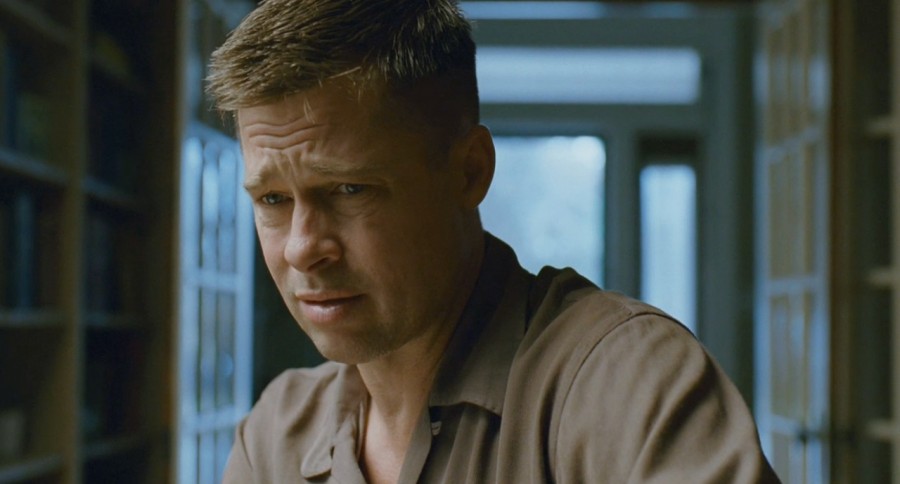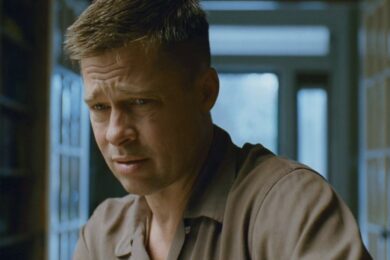Cannes exists as two co-existing film events: the one of rosé flooded yachts, endless sun, glamour and exquisite cinema, and the other of empty handed disappointment and a grinning desperation that quivers manically just beyond the frame of the celebrity red carpet photo ops. The patter of producers and writers pitching criminally dire sounding films, that will rather depressingly probably get made, crackles through the heavy air – a personal favourite to which I was subjected was, "it’s like Billy Elliot meets Bend It Like Beckham", pitched by a talkative LA producer loaded with more mobile phones than good ideas.
A few notches down the festival-pass-hierarchy, aspiring filmmakers swivel round open mouthed as they realise that though the stardust might sparkle brighter in Cannes, it is sadly just as far away. Then there’s the endless pestering for party invites. Even at parties, the grating noise of elegance clawing its way onwards and out, up to the bigger, hotter, less sweaty party, is cringe worthy. Suggestive flirtations end with the same abruptness that it takes to quell someone’s idea that you can miraculously summon invites to see Depeche Mode DJ or Harvey Weinstein kick it old school on the dance floor. Even further down, flowing up and down the Croisette, stagnated around the Lumiere theatre, hoards of absurdly smart and over-dolled hopefuls hold out signs pleading for tickets, with the more proactive scrawling messages of hope on their chests. Ducking into a nearby café or bar won’t offer escape from the claustrophobia, as endless armies of child beggars and peddlars of novelty lighters and plastic hats interrupt your every mouthful of tepid pasta.
Yet as the sun catches familiar hotels, theatres and landmarks, Cannes’ own geist shrouds the festival in an uplifting, almost utopian, haze such that remembering the day’s events can be as abstract as clinging onto the remanence of a previous night’s dream.
The films themselves straddled similar poles of brilliance and disappointment, with the much anticipated big-hitters struggling under the weight of their flaws more than their inability to live up to promised grandeur. Beginning with a mini riot, and ending with heated debates, reclusive filmmaker Terrence Mallick’s The Tree Of Life was the deserved winner of the Palme d’Or. Wielding epic themes such as creation and the meaning of life itself might make it sound pompously highfalutin, yet in delightful contrast to its sublime presentation, the film tackles these themes with an intimate, existential temper; it is the meaning of one’s life that is explored, rather than something more abstract and mystical. As such, the most fascinating aspects of the film aren’t the much-mentioned metaphysical digressions, but the psychological flight of Jack (brilliantly played both by the young Hunter McCracken and the reserved Sean Penn).
Mr. O’Brien (Brad Pitt) is a strict father who tries to bring his eldest, Jack, up to be strong, preparing him for the dog-eat-dog trials of life. Though O’Brien clearly loves his son, his enthusiasm for authoritarianism has unintended results on the young boy. In parallel, the father’s own story suggests he’s using the boy (like an over enthusiastic football dad punching the referee) to relive his own failed dreams as well as projecting his own insecurities. All the metaphysical hubris is spectacular, but rather wishy-washy and uninteresting. As it does have the tendency to drag and in places and overdo the abstract imagery, it is certainly a film that would be easy to cynically dismiss as a collection of screen-savers, yet actually engaging with the film (like with Enter The Void, though this may require quite some effort) is immensely rewarding.
Standout film of the festival was Lynne Ramsay’s We Need to Talk About Kevin. Though it’s twelve years since the gripping Ratcatcher and nearly ten since her dreamier Morvern Callar, Ramsay has set herself apart as one of Britain’s most exciting directors. Iconic sequences and a gloriously (perhaps overly) considered colour palettes hold the story’s drama and demonstrate a forward progression in her style. Tilda Swinton plays the increasingly weary mother of Kevin, her congenitally evil son who, from even before he can talk, drags her through all manner of psychological torment. John C. Reilly is tremendously cast as the easily manipulated father; instantly likable, he brings an over enthusiastic good will that makes Kevin’s condition all the harder, and more disturbing, to understand. By the time Kevin is a teenager, he completely rules the household – brilliantly shown in dinner scene somehow reminiscent of De Vinci’s The Last Supper.
The focal tension of …Kevin is the battle inside the mother’s head as she tries to convince all those around her that Kevin is not quite right. Yet due to Kevin’s expert manipulativeness in seeming like any other normal boy, especially to the pushover father, she is caught in a solipsistic whirlpool whereby she struggles with the quandary of whether it is her that is going mad. You perhaps have to accept all too easily that most characters are slight caricatures; the mother is far too introverted and a flimsy, the father blind to the world around him and Kevin is such a classic violent psychopath it’s a wonder he hasn’t been thrown in a detention centre years before.
Cannes darlings the Dardenne brothers were back with Kid On A Bike. More of their usual quirky realism, it jutters and darts very much with a similar nervous energy as their 1999 Palme d’Or winner Rosetta. Twelve year-old Cyril is pitted against the world and his own stubbornness. Unable to come to terms with the fact his father has abandoned him, he lashes out against his extremely good natured carer Samantha. While his misadventures and endless movement make for brilliant cinema, the lonesome and sensitive Cyril is at such an impressionable age made more vulnerable by his situation, that it often feels like drama is ignored in favour of contrived minimalism. As in the tension created when he is forbidden to hang out with an older, who from an older perspective is clearly odd, yet who Cyril has become besotted with. Such themes are merely skated over and alluded to rather than explored affectively.
Winner of Un Certain Regard Ex-æquo was eccentric Korean filmmaker KIM Ki-Duk, who describes his documentary ARIRANG as a self-portrait. Though he is the only star of the film, he fills it with life and drama by interrogating the many different characters of his personality. His more self assured self bullies his self-deprecation and pessimism, each being given space to soliloquise with maximum indulgence. There are obvious comparisons to the spectacular I’m Still Here, and though it’s equally intense and interrogative and much more mature, it’s far less dramatic and entertaining than Joaquin Phoenix’ masterstroke.
Michel Hazanavicius’ film The Artist gathered some deserved acclaim by way of a Best Actor award for Jean Dujardin. Part celebration of and part revisiting of the silent film era, The Artist was a high paced and fun spectacle starring the likes of John Goodman and Malcolm McDowell. It was perhaps a missed opportunity seeing that there is such rich potential in revisiting the old paradigms of silent era through contemporary techniques. Yet The Artist (screened in 4:3) for the most part plays out like a (brilliant) silent film – apart from one extremely well conceived dream sequence where George Valentin has a nightmare that the world is suddenly alive with sound.
Across Cannes, paedophiles and sexual deviants were given probably a larger than fair share of exposure. Australian novelist Julia Leigh wrote and directed her debut film, the semi-erotic Sleeping Beauty which follows the complicated trials a young pretty student Lucy (the stunning Emily Browning). Desperate to stay afloat in these uncertain times, Lucy gets caught up with a very odd Madam who drugs her for the lecherous delight of various rich old men. An original and eccentric idea with a few excellent scenes that squeeze eroticism, comedy and tension into one tightly fitted room.
Czech born Urszula Antoniak’s latest Code Blue lunges in with a fascinating dilemma in which a middle-aged nurse, Marian, who, with all the good will in the world, helps dying patients to end their suffering. One day she misreads a patient’s signals and falls even further into her self-depreciation. Rather challenging and graphic in parts, Marian explores her own personal fetishes deeper and drifts into a bizarre relationship with a man she sees on the bus. Though it’s certainly immersive, its self-indulgence often soporific and its graphic rape scenes seem to exist purely for shock value.
Somewhat similar to the recent story of Natascha Kampusch, the girl kidnapped at the age of ten for eight years in Vienna, Markus Schleinzer’s debut Michael is about a local paedophile, Michael, who keeps a ten year-old boy locked via an elaborate security system in a cell in his basement. What’s really uncomfortable about the film is the way Schleinzer doesn’t so much try to get you to like him, but makes you feel that, aside from the shadows that lurk in the recesses of his mind, he is a normal person with normal, everyday concerns and goals just like everybody else. Bizarrely, the boy even helps Michael with the housework and eats with him upstairs. Michael brilliantly explores the various odd angles to their complicated relationship. It also has possibly the most tense, frustrating and brilliant ending of any film in the festival.
One of the other festival highlights, and winner of the Jury Prize, was Maïwenn’s Poliss, which she wrote, directed and also took on a major role. Roughly based on real life accounts, Poliss follows various members of a group of Child Protection Unit in Paris as they take on various assignments. Constructed from a collection of mini-stories, the over-arching narrative of the film tracing the progressing relationships of the colleagues. As such, it plays out in the style of an entire television series like The Wire, yet reduced to two hours. It’s an incredibly effective structure that’s worked on TV and it’s not a surprise that it works tremendously well on the big screen. The only really annoying part of the film is that the ending feels tacked on as an afterthought, or the impatient result of a brainstorming session to come up with something shocking to go out on.



